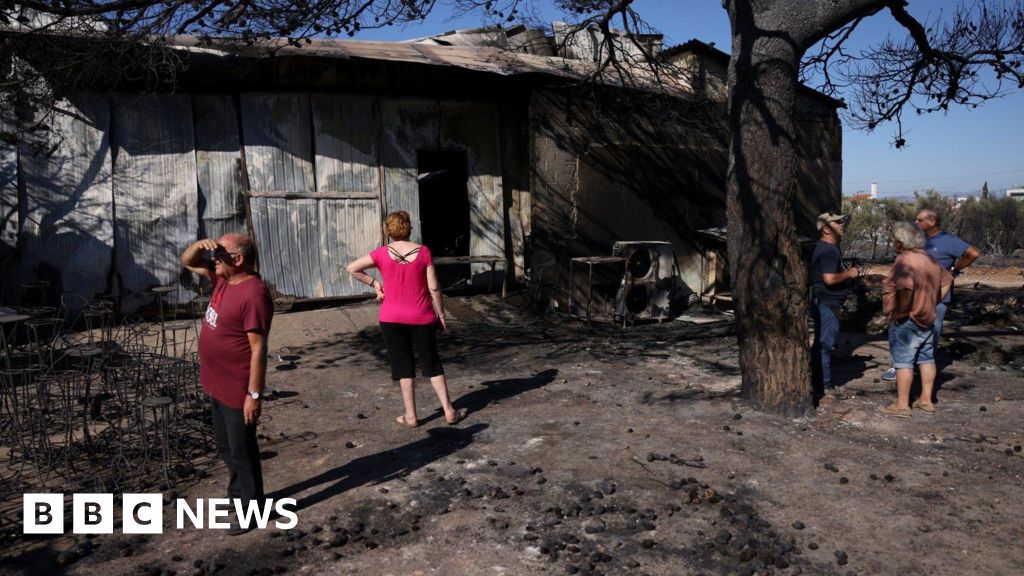
There are no longer any active wildfires in the wider Athens area, but officials remain on high alert, Greece’s chief fire brigade spokesman has said.
Milder winds and extensive efforts by the emergency services have helped bring the blaze under control.
But there is still risk of flare ups because of wind gusts and temperatures soaring well above 30C (86F) in the daytime.
One woman died and dozens more people – including firefighters – were injured after the fires tore through 100,000 acres (40,470 hectares) of land. Thousands of local residents have been evacuated.
The huge smoke cloud that hung over Athens for hours was gone on Tuesday – but the sky was still hazy.
The Greek authorities are now assessing the damage and preparing compensation schemes for affected residents as well as businesses.
More than 700 firefighters, 199 fire engines and 35 waterbombing aircraft have been involved altogether in efforts to extinguish the fires, which first broke out on Sunday afternoon about 35km (22 miles) north of the Greek capital.
By Monday, blazes were confirmed in 40 different locations, with some areas seeing flames as high as 25m (82ft).
Though the fires have largely abated, firefighters are continuing to douse the ground and maintain a strong presence in the capital region.
Suburbs including Nea Penteli, Vrilissia and Patima Halandriou are among the worst affected areas.
One Nea Penteli resident, Marina, described how she had been forced to flee her own neighbourhood in Nea Penteli for a nearby town, only to be evacuated a second time as the flames reached there too.
“My friend’s house – he probably lost everything: he has no belongings. And while everything was happening, even our school burned down. All our memories were there,” she told the BBC.
In Vrilissia, just 14km (8 miles) from central Athens, buildings and businesses were left gutted by the flames,
The body of a 63-year-old woman was found in a burned-out factory in nearby Patima Halandriou.
Colleagues said she had been too scared to jump from the building as the flames came close and was then trapped inside.
Prime Minister Kyriakos Mitsotakis cut short his holidays to return to handle the crisis.
After activating the EU’s mutual civil protection mechanism, European countries including Italy, France, Serbia, Spain, the Czech Republic and Romania provided assistance including aircraft, personnel and aid to Greece.
